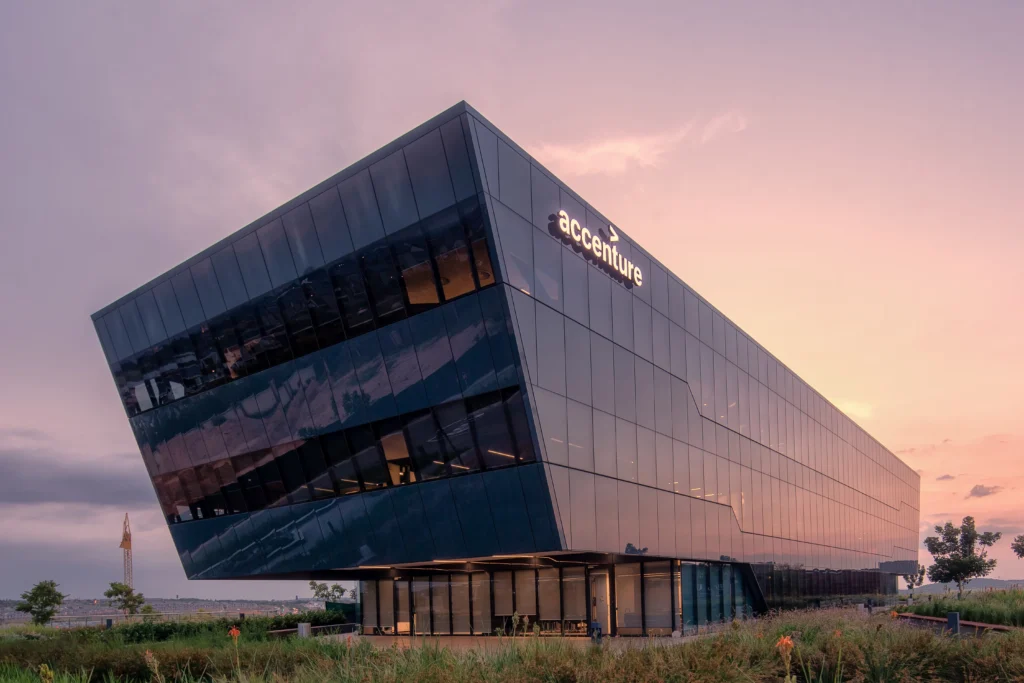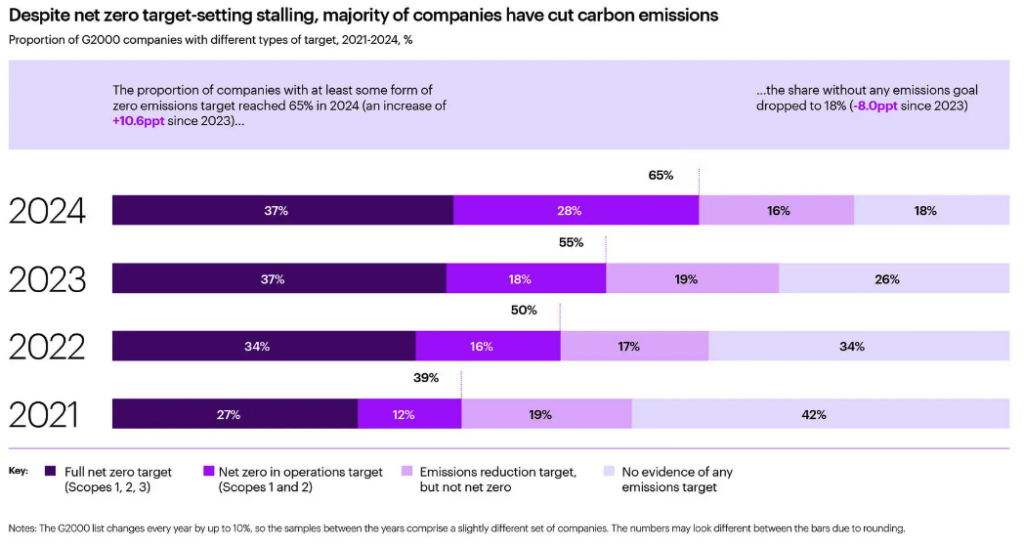Only 16% of Largest Companies on Track for Net Zero by 2050, Accenture Reports

- Slow Progress: Only 16% of the world’s largest companies are on track to achieve net zero emissions by 2050, while 45% have seen emissions rise.
- AI Potential: Despite AI’s potential in carbon reduction, only 14% of companies currently use it for this purpose, and emissions linked to AI are expected to surge without innovation.
- Regional Leaders: European companies lead in adopting decarbonization levers and net-zero targets, with 20% using AI for emission reductions compared to lower rates in Asia Pacific and North America.
Only one in six (16%) of the world’s largest companies are projected to meet their 2050 net-zero goals, according to Accenture’s latest “Destination Net Zero” report. While over half (52%) have managed to reduce both carbon emissions and intensity since the 2016 Paris Agreement, 45% have experienced increased emissions, revealing substantial challenges ahead.
By the Numbers Accenture’s report:
Analyzing emissions data from S&P Global Trucost 2024, highlights these critical figures:
- 55% of G2000 companies have reduced their operational emissions (Scope 1 and 2) since 2016, up by 3% since 2023.
- 77% have lowered emissions intensity, a 2% improvement from 2023.
- 30% of companies have implemented 15 or more decarbonization levers—a vital benchmark on the road to net zero.

“A majority of the world’s largest companies are now cutting their emissions even as the size of their operations and revenues grow. While this is a significant milestone, to get to net zero by 2050 all of us need to move faster, together, to reinvent sustainable value chains using deep collaboration and transformative technologies,” said Stephanie Jamison, global sustainability services lead at Accenture.

Regional and Sectoral Discrepancies
The analysis also revealed notable regional and industry disparities:
- 64% of European companies have full Scope 1-3 targets, compared to 26% in North America.
- The banking sector leads with 54% having complete Scope 1-3 targets, while the healthcare sector trails at 20%.
- Communications and media companies, on average, deploy 3.7 decarbonization levers, in contrast to 6.3 in the health sector.
The Role of AI in Decarbonization The report emphasizes the underutilization of AI in climate efforts. Currently, only 14% of companies are leveraging AI to cut emissions. Accenture’s analysis predicts AI-related emissions could rise from 68 million tons CO2e in 2023 to 718 million tons CO2e by 2030 without major technological advancements.
“The most realistic scenario is probably one in which AI initially emits more than it abates, until a critical crossover point,” Jamison noted. “Responsible and sustainable scaling of AI means ensuring that crossover point is reached as early as possible.”

Despite these projections, leaders remain optimistic: 42% expect AI to lower emissions in the short term, and 65% foresee its long-term impact in the race to Net Zero.
RELATED ARTICLE: Accenture and UN Highlight Gen AI’s Role in Accelerating SDG Progress Amid Global Crises
European Companies Lead the Charge Europe stands out with nearly half (48%) of companies implementing 15 or more decarbonization measures, surpassing Asia Pacific and North America.
“The recent Draghi report highlights the need for Europe to marry decarbonization with competitiveness,” said Mauro Macchi, CEO of Accenture, EMEA. “It’s therefore encouraging to see businesses across the region taking a lead both in setting ambitious net-zero targets and using new technologies such as AI to reduce carbon emissions.”

This report underscores the urgency for accelerated collaboration and innovative solutions to ensure that the path to net zero remains achievable.
Follow ESG News on LinkedIn












